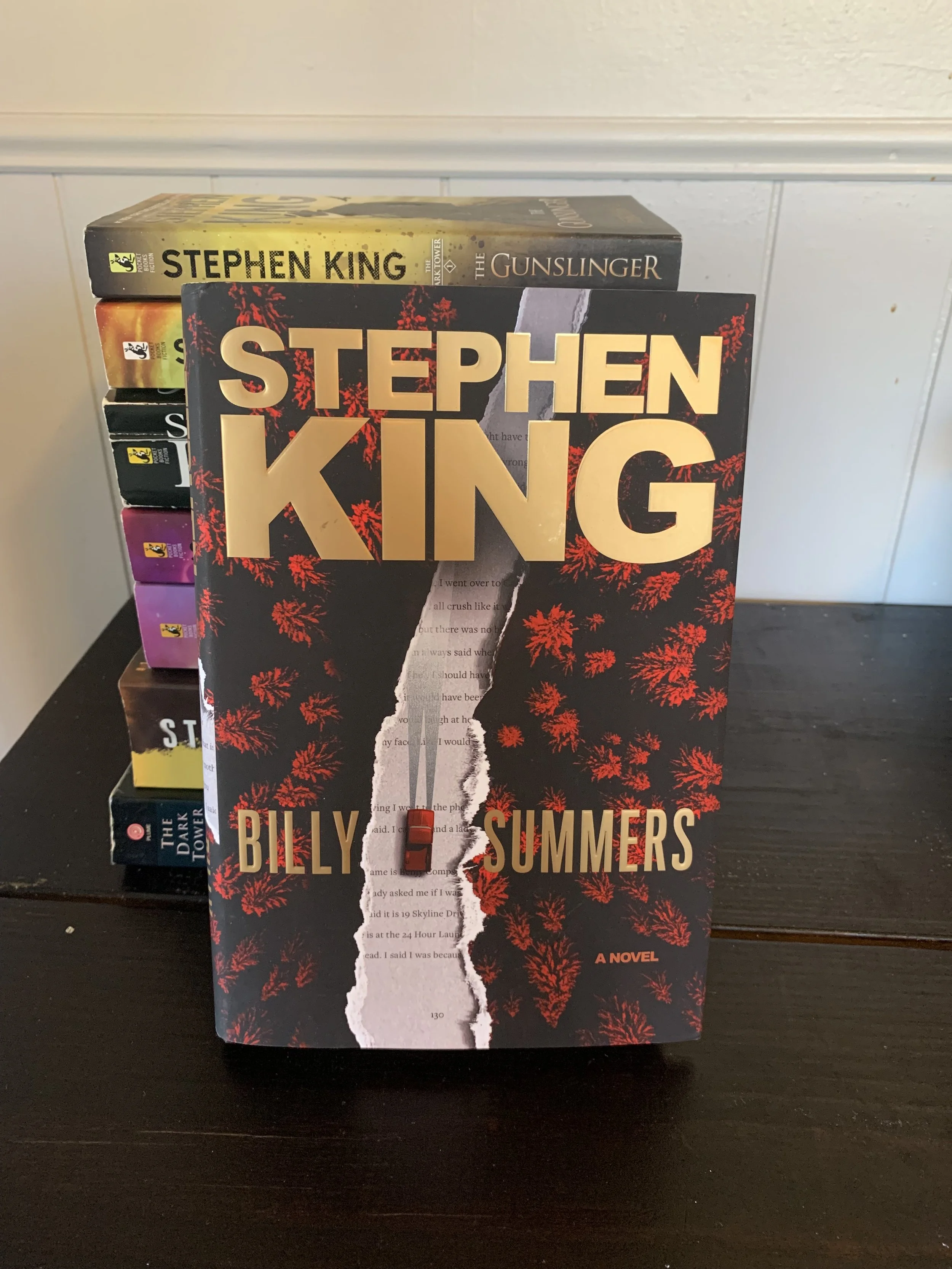Houston Southard
Stephen King - BIlly summers
Billy Summers is Dexter Morgan's modis operandi meets Joe Goldberg's tangential inner monologue. He's a hitman-killing hitman whose final assignment has him in deep cover as a novelist, letting the book play out as a triple-layer life story, all the while poking fun at the shit-goes-wrong tropes that accompany "the last job" stories.
Billy Summers, much like the Dark Tower, also bends the fourth wall in a nice nod to King's personal life. A first chapter metaphor references the time King was doing his morning walk on the shoulder of the road when a van veered over the double yellows, came over the hill and crushed him. Broken legs, hip, ribs, punctured lung, concussion. He takes it even farther in the Dark Tower and writes in a younger version of himself writing the series and SPOILERS the main characters dimension-hop to save him from getting hit by the van.
Maybe even better than the premise or tropes or meta moments is teasing out all the easter eggs Stephen King is known for leaving within his stories. In an interview promoting the magnum opus Dark Tower, King reveals all 70+ of his works exist on the same "wheel of ka," his version of the multiverse. The antagonistic "man in black" can be found dimension-hopping through each of his books: He's Kujo in Kujo, Pennywise in It, Randall Flagg in The Stand and several others, and in Billy Summers, outside a heaping handful of The Shining references, you'll have to see for yourself.
This may not be Stephen King at his best, but it's Stephen King at his Kingiest. Fans of him, Jeff Lindsay or Caroline Kepnes will fall into a familiar and fun rhythm as Billy settles some debts once and for all.


